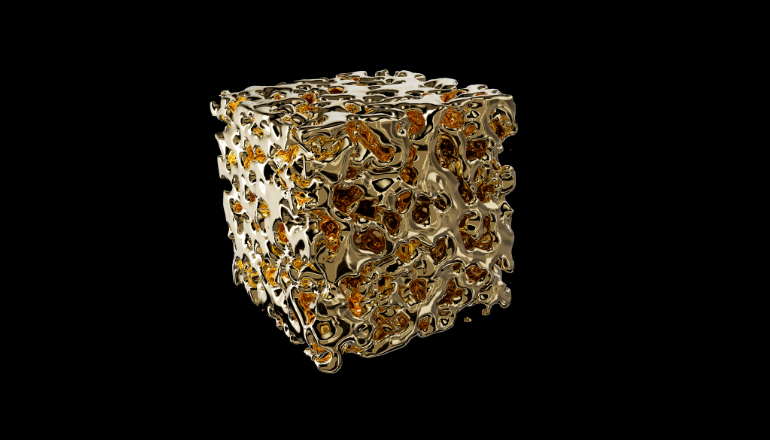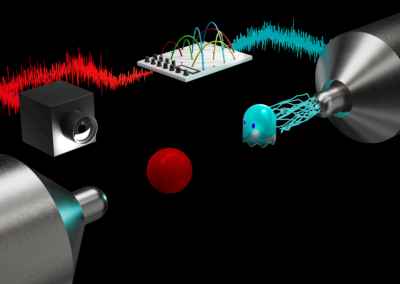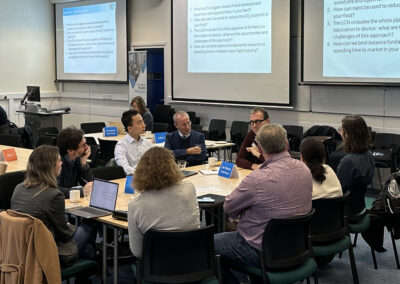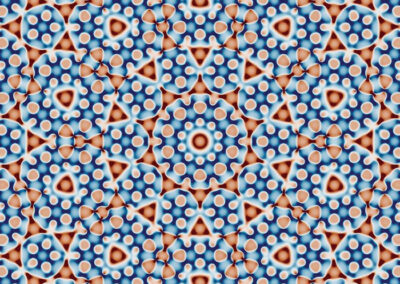MetaHUB will develop new forms of engineered materials for use in everything from green energy to innovative healthcare
LCN researchers at King’s College London is part of a pioneering new research collective, designed to spearhead the UK’s world leading, cutting-edge 3D nanoscale metamaterials science.Led by the University of Exeter, MetaHUB will develop new forms of engineered materials – designed at the nanoscale – for use in everything from medical sensors to green energy to sustainable designs.
Metamaterials are 3D engineered structures with properties not found in nature, allowing unprecedented control over light, heat, sound, and even the mechanics of materials.
MetaHub is supported by £19.6 million in public and private backing, and was announced by the Science Minister, Lord Vallance. The hub aims to help position the UK at the forefront of this transformative research field, which scientists believe will redefine the interaction of energy, light, and information with the world around us.
The hub brings together a multi-disciplinary team of scientists from King’s College London and the Universities of Cambridge, Cardiff, St Andrews, and Southampton. The King’s team includes Professor Anatoly Zayats, Dr Wayne Dickson, Dr Jay Patel and Dr Aliaksandra Rakovich from the Department of Physics, and Dr Miao Guo from the Department of Engineering.
The hub will also see collaboration with around 40 partners including leading industry players, suych as STMicroelectronics, PepsiCo, QinetiQ, Leonardo, WaveOptics, the High Value Manufacturing Catapult, and the Henry Royce Institute.
Speaking at the University of Exeter, Science Minister Lord Vallance said: “The work happening here…is a prime example of how cutting-edge research can attract private investment and drive economic growth, in every corner of the UK, which will be critical to our economic mission at the core of the Plan for Change.
“Our backing for MetaHub is an investment, for both today and for tomorrow. We are securing the UK’s leadership in the high-potential field of metamaterials, and paving the way for future products and innovations that will deliver jobs and growth, in the years ahead.”
MetaHUB’s mission is to use the capabilities of metamaterials to deliver practical solutions in areas that include:
- Green energy: Developing low-energy AI computing, enhanced communications, harvesting waste heat, and renewable power technologies.
- Sustainable design: Creating modular, longer-lasting, recyclable and resilient devices from non-toxic, earth-abundant materials.
- Environmental remediation: Advancing detection and clean-up of forever chemicals, polluted soils, and carbon capture.
- Healthcare innovation: Pioneering early diagnosis technologies for conditions such as cancer and dementia.
In addition to science and technology, MetaHUB places sustainability and circularity at the heart of its research. The team will work closely with the sustainability and circular economy communities to ensure outcomes are practical, ethical, and scalable.
Professor Anatoly Zayats said, “We are looking forward to working with our academic and industry partners to exploit the unique opportunities that three-dimensional metamaterials can provide in the development of new practical applications in sustainable technology. MetaHUB cements the UK’s strategic position in the global race to master metamaterials and will help unlock their potential for economic, environmental, and social transformation.”



